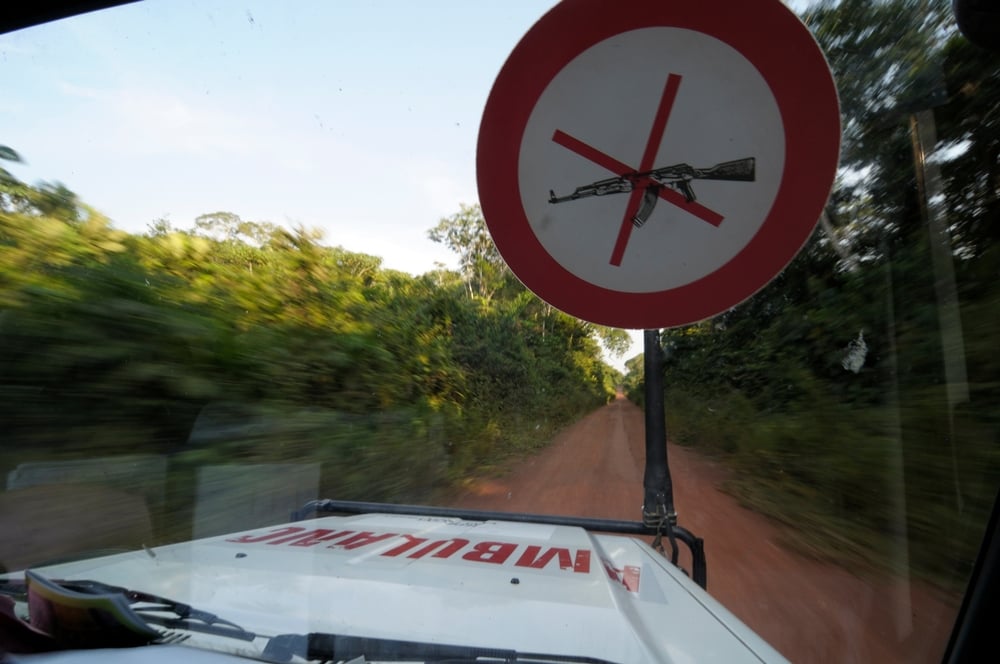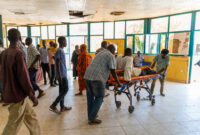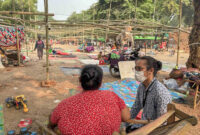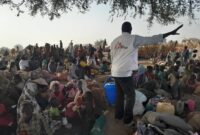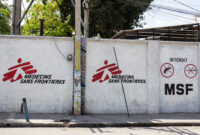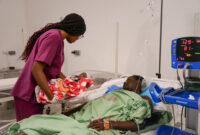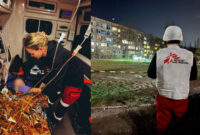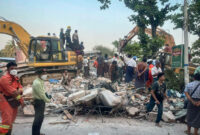Counter terrorism is “Adding salt to the wound” for MSF’s work in conflict
Twenty years after the start of the ‘global War on Terror’ in the wake of 9/11, Doctors Without Borders/Médecins sans Frontières (MSF) today released a report “Adding salt to the wound” highlighting the consequences of counter-terrorism wars on its frontline workers. The findings of the research paint a bleak picture of the reality of trying to provide impartial medical care in the War on Terror era.
“MSF frontline staff told us about how they are harassed, intimidated, beaten and accused of supporting terrorists when they provide impartial healthcare,” said Luz Saavedra, the lead researcher for the report in the Analysis Department of MSF.
The report is based on qualitative research with MSF frontline staff working in and coming from Afghanistan, Nigeria and Iraq. The report focuses on elements that were found to be present across all three countries. MSF staff consistently described these counter-terrorism conflicts as “dirty wars” where “no one is safe”.

A key finding was that counter-terrorism policies and practices bring real and personal risks to medical practitioners. Nearly two thirds of the staff who gave in-depth interviews had directly experienced or witnessed violence or intimidation and had been accused of supporting ‘terrorists’ when they treated patients based on their needs alone. Armed forces have used violence at the gates of health facilities, inside hospital wards and in ambulances on the road in an attempt to prevent MSF frontline workers from treating patients based on medical need and according to medical ethics.
Difficult to distinguish difference
From the perspective of frontline workers, it becomes increasingly difficult to distinguish between the tactics of so-called terrorists and of those countering them.

Care is inhibited or obstructed to entire communities. Civilians and combatants are often merged into what is considered by armed forces as one hostile enemy. Armed forces try to justify stripping civilians of their protection under international law because they are ‘terrorists’ or ‘supporters of terrorists’. One interview respondent said, “we saw them bombing the city full of civilians, families in their houses.” The sick and wounded are often left to suffer or die because, as another MSF staff member said, “we could not access them and they could not reach us.”
Impartiality
The humanitarian principle of impartiality – treating patients based on needs alone – was identified by MSF frontline workers as being vital to uphold and defend in counter-terrorism environments. However, the research participants also pointed out how being genuinely impartial comes under constant attack in very real and dangerous ways. “It is outrageous that states expect health workers to refuse treatment to patients based on politics or military considerations,” said Saavedra. “Our teams are considered by those fighting counter-terrorism wars to be part of their military strategy; we are accepted when we are useful but rejected when we are considered not to serve their military and political purpose. We cannot accept this – it prevents us from treating patients and goes against everything that being humanitarian stands for.”

Research participants pointed out how the perceived proximity of humanitarian actors to states in counter-terrorism wars generated huge suspicion from armed opposition groups that often rejected engaging with MSF or other humanitarian organizations. Currently, MSF finds itself too often restricted to one side of a front line with a counter-terrorism force that wants to take advantage and an opposition that won’t talk or is hostile.
These research findings offer a unique insight into the reality of working in counter-terrorism environments. Frontline workers know how difficult it is to operate in conflict zones; and they say counter-terrorism laws and practices make it even harder by adding “salt in the wound”. But the perspective of frontline workers is rarely considered in policy discussions on countering terrorism.
“Unfortunately, the findings of this research do not come as a surprise,” said Francoise Saulnier, MSF’s International Legal Director. “The War on Terror has eroded the protection of the medical mission by prioritizing domestic counter-terrorism laws rather than international humanitarian law. This often leaves our teams exposed to states’ interpretations of laws and of the role of healthcare”.
We need to be able to provide treatment according to medical needs alone. We need to be able to talk to all groups that control access and could harm our teams. Our health facilities need to be spared from any kind of military and security operations.
To achieve this, MSF is once again calling for humanitarian exemptions in counter terrorism environments. “This means that impartial humanitarian organizations must be exempted from being targeted by the legal regimes and military tactics that have come to define the War on Terror” concludes Saulnier. “Seeking or providing much needed healthcare cannot be punished in the name of ‘fighting terrorism’.”
Research Methodology
The research project that led to the findings presented here, aimed to understand the extent of counter-terrorism’s effects on the provision of impartial humanitarian healthcare from the firsthand experiences of MSF frontline workers in Iraq, Afghanistan and Nigeria. It was designed on the basis of an extensive literature review (including 110 external documents and around 150 internal MSF documents) and interviews with 44 key informants (including staff from MSF, other international non-governmental organisations and the UN, as well as academics and consultants). Qualitative data was then collected through online and live in-depth interviews with 26 MSF locally-hired staff in the three countries. All 26 of these staff members worked directly in environments where they were exposed to counter-terrorism operations. In all cases, their agreement to participate in the research was based on strict confidentiality due to the risks associated with this topic. None of the quotes or examples included in the report should be attributed to any specific MSF project, nor to any one of the three selected study countries.
The selection criteria for participants included: being a frontline MSF worker from one of the three countries; having a work role that was potentially directly impacted by counter-terrorism practices; and a willingness to take part in the research by freely expressing their informed consent. The 26 in-depth interviews (which lasted for more than 17 hours in total) were transcribed (224 pages of transcripts) and thematically coded. These codes were analysed, comparing results between the three countries, between responses by medical and non-medical staff, and against the thematically coded desk literature review and the thematically coded 44 key informant interviews. The research protocol passed a rigorous ethical review board approval.
